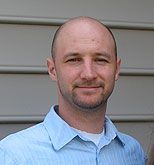 A few weeks ago I learned of a major event taking place in Los Angeles that coincided with the 110th anniversary of the Azusa Street Revival. Sponsored by Lou Engle and The Call, Azusa Now came about through a unique series of revelatory dreams, prophetic words, and a great deal of sacrifice from one leader. While reading Matthew 13, Lou Engle heard the Lord say to sell his house and purchase the field for the event. Quite a faith-filled act.
A few weeks ago I learned of a major event taking place in Los Angeles that coincided with the 110th anniversary of the Azusa Street Revival. Sponsored by Lou Engle and The Call, Azusa Now came about through a unique series of revelatory dreams, prophetic words, and a great deal of sacrifice from one leader. While reading Matthew 13, Lou Engle heard the Lord say to sell his house and purchase the field for the event. Quite a faith-filled act.
Even as a self-described charismatic (a subdued charismatic though), there are still things about this event that feel over the top to me. It’s also easy to dismiss some of this as a great deal of hype coinciding with the anniversary of the Azusa Street Revival, even though to the faith-filled heart, there are many supernatural circumstances that came together to bring this about. The hope is that over 100,000 people will gather to pray for revival, the unity of the church, and for God’s miraculous outpouring. The whole assertion of a big gathering to pray for revival easily touches the skeptic in me. When I think back historically, none of the great awakenings or revivals seemed to start by a large meeting. In fact, they mostly seem unplanned, but yet born out of a great deal of almost invisible prayer from disciple to disciple and congregation to congregation.
The question that has caught me though as I have tried to find myself leaning into this moment is – “Do You Want Revival Chris?” “Would You Really Like To See It Happening?” Do I want to see people come to Christ and experience the power of Jesus? Do I want to see bible studies over-filled with people yearning to engage the scriptures? Do I want to see healings take place and miracles occur? Do I want to see the church growing and thriving with a humble, Christ-like authority? Do I want to see our tremendous racial barriers broken in our nation? Wouldn’t I want it? These are all the fruits of revival.
Among many leaders of the variety that pay attention to Ecclesia or Missio Alliance or anywhere in the “missional” conversation, my guess would be that your response to something like this wouldn’t be very different than mine. Like me, you may have to work yourself through your first, second, and maybe even third layers of skepticism to get to the point in your heart where you would come to realize that actually you do want it to. Even if you don’t think it will happen, hopefully you would want an awakening to occur.
I remember Dallas Willard telling me that the first question he would ask any skeptical philosophy student who would walk into his office is “Do you want there to be a God? And, if so, would you want Him to be like Jesus”? Of course, his point was that our mind (and therefore our actions) will have a hard time being open to that which our heart is closed toward. So, here, I ask to my wide-ranging friends who somehow find themselves around the “missional” conversation, Do you want, in your heart, a great awakening? If so, could you begin to pray for it? Even if you pray in a way that would protect you from disappointment if it doesn’t happen?
Now that I’ve realized that I really do hope that something happens, I can pray that something will happen. And, I can pray in a way that unashamedly asks Jesus to pour our His Spirit upon His people and our land. Would you join me? And if that skeptic in your rears its head, ask yourself, “don’t I want this?” I can’t imagine that you wouldn’t.







